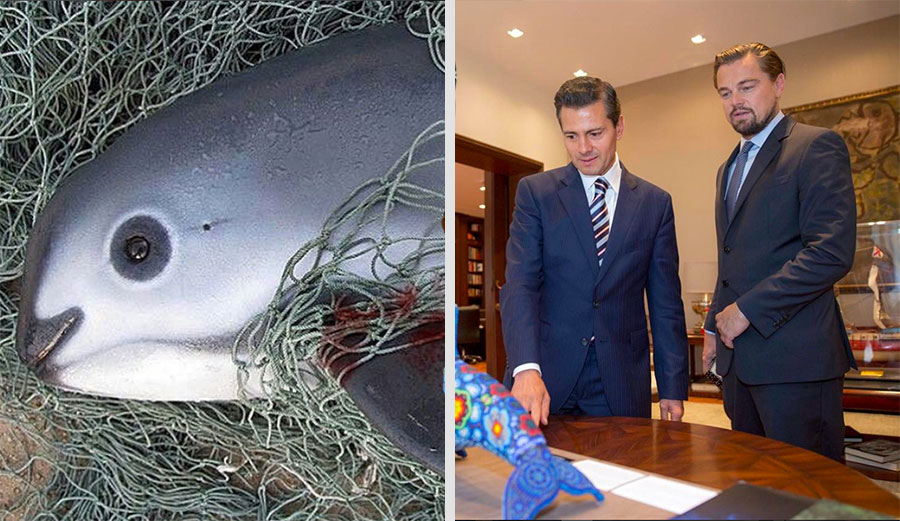
Can Leonardo DiCaprio save the vaquita porpoise?
The endangered vaquita porpoise might have a new savior, and it comes in the form of Leonardo DiCaprio.
The vaquita porpoise is extraordinarily shy. It’s also on the very brink of extinction. They tiny animal is the world’s smallest cetacean, and it’s only found in the Sea of Cortez. Right now, there are only about 60 left on earth–and of those, only 25 are thought to be females in the right age bracket to reproduce.
There have been a number of efforts to save them from what seems to be a foregone conclusion–Sea Shepherd has raised nearly $500,000 and the Navy even trained dolphins to find them. Kelly Slater weighed in on Instagram about the subject. “There are only about 60 of these smallest dolphin species on earth left in the ocean and they’re all in the NW part of the Sea of Cortez, threatened by gill net fisheries,” he wrote. “The fisheries bring in more money than the #Vaquita so the chances are slim to stop the threat and increase the population. I hope I get a chance to see these creatures in the wild in my lifetime. Hopefully, someone can create a breeding program to keep the numbers stable until another permanent solution can be figured out by the Mexican government.”
DiCaprio’s foundation teamed up with the Mexican government and the Carlos Slim Foundation to try and push the vaquita population back to normal levels. “Now more than ever, the world is looking for bold leadership at every level to tackle climate change and environmental conservation issues,” DiCaprio said in a statement. “I am honored to work with President Peña Nieto to ensure the future viability of marine life in the Gulf.”
So what, exactly, are they doing? Well, the agreement “proposes emergency measures to ensure the conservation of their marine ecosystem, the Revillagigedo World Heritage Site in the Upper Gulf of California, where they live. They also hope to address the illegal fishing of the endangered totoaba fish for the Chinese ‘traditional’ medicine market, in whose fishing gillnets the vaquita get caught.”
That means a permanent ban on gillnetting, increased patrols to combat illegal fishing, and stricter punishments. As well, there will be a new program to get rid of any ghost nets in the area, get communities interested and involved in sustainable fishing practices, and if it comes down to it, a captive breeding program for the vaquita.
“Mexico understands its responsibility as one of the countries with greatest biodiversity,” Mexican President Enrique Peña Nieto said in the statement after the signing. “That is why we have implemented an historic effort to avoid the extinction of a unique species in the world and also to protect important ecosystems such as the Revillagigedo World Heritage Site.”

